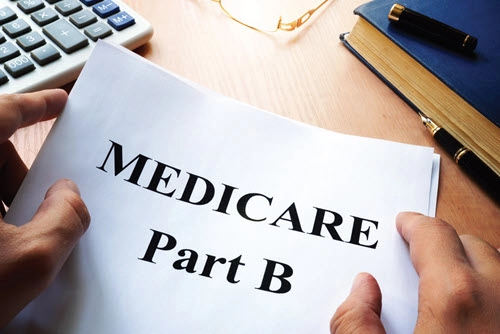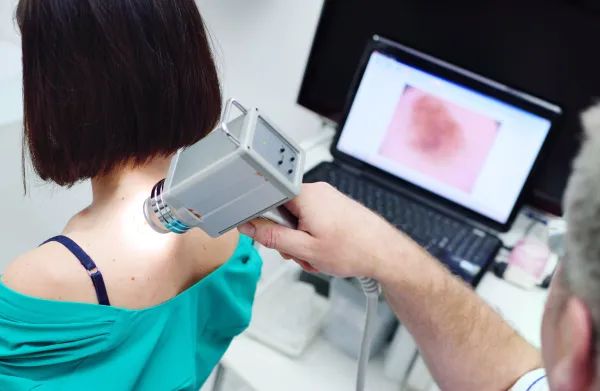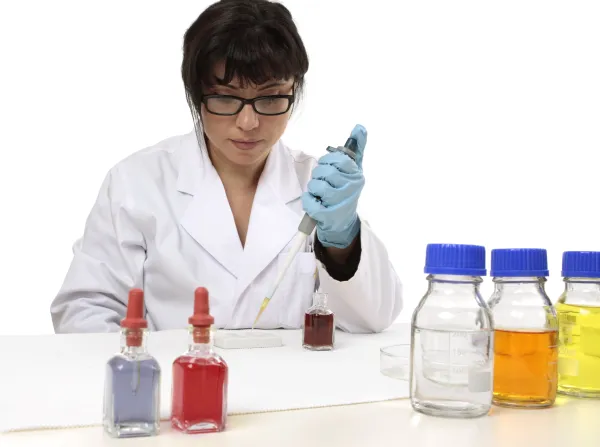Conversion Factor Proposal = Pay Cut Next Year
See what sticks from COVID-19 specimen collection changes. The Medicare Physician Fee Schedule (MPFS) proposed rule highlights some changes you might expect for your lab next year. Let our experts break it down for you to see how the proposal could impact your bottom line. Check Out Proposed CF Change CMS reevaluates the conversion factor (CF) in its fee schedule proposals — and the CY 2022 MPFS is no exception, offering a substantial CF cut as part of its budget adjustment. Here’s why: The law requires CMS is to offer a “proposed budget neutrality adjustment to account for changes in [relative value units] RVUs” to align with inflation,” the agency reminds in a fact sheet on the rule. 2021 exception: CMS opted to finalize a massive 10+ percent CF decrease in the CY 2021 MPFS amidst major blowback from industry organizations and stakeholders. But as COVID-19 numbers spiked in December 2020, Congress passed the Consolidated Appropriations Act, 2021 — a $900 billion COVID-relief bill — which included a one-time only 3.75 increase to the CF to accommodate cash-strapped providers. Proposal: Now CMS intends to make the CF $33.58, a $1.31 decrease from the current CF of $34.89. “This reduction can be attributed to the expiration of a 3.75 percent increase in the 2021 conversion factor, which Congress applied via legislation in December 2020,” notes the American Academy of Family Physicians (AAFP) in its rule summary. In addition, the AMA points out that the proposed CF decrease combined with other factors would likely topple Medicare providers’ bottom lines, too. For example, the temporary 2 percent sequestration payment suspension is slated to sunset on Dec. 31, and potential Merit-Based Incentive Payment System (MIPS) penalties are scheduled to go up to 9 percent in CY 2022, warns James L. Madara, MD, AMA CEO and executive vice president in a letter to Congress. Another worry relates to mandatory decreases triggered by COVID relief. “The Congressional Budget Office has estimated that a Statutory PAYGO sequester in fiscal year 2022 resulting from passage of the American Rescue Plan Act of 2021, the $1.9 trillion COVID-19 relief package passed this March, would cause a 4 percent reduction in Medicare spending — or cuts of approximately $36 billion,” notes the American Hospital Association (AHA) in a PAYGO fact sheet. “The combination of all these policies would be challenging to endure in normal times,” Madara says. But “the enactment of further Medicare payment cuts will undoubtedly threaten patient access to care, especially considering the stark reality that, adjusted for inflation in practice costs, Medicare physician payment actually declined 22 percent from 2001 to 2020, or by 1.3 percent per year on average.” Pathology: According to the proposed rule, reimbursement for pathology services would decrease by 1% due to changes practice expense pricing. But remember that the specialty impact estimates in the proposed rule don’t include the conversion factor 3.75 percent decrease. See if COVID-19 Collection Pay Sticks Since March 31, 2020, independent labs have been able to bill for a specimen collection fee and associated travel allowance for collecting specimens for COVID-19 testing for homebound and non-hospital inpatients using one of the following codes during the public health emergency (PHE): Although stakeholders had responded affirmatively to CMS’s request for input about continuing these codes and payment levels after the PHE, the agency’s answer is no — “After considering these comments, we continue to believe that the laboratory specimen collection fees for COVID-19 clinical diagnostic laboratory tests (CDLTs) established in the context of and for the duration of the PHE for the COVID-19 pandemic should conclude at the termination of the PHE,” which is currently set to expire on Oct. 18, 2021 Consider Existing Collection Pay Despite declining to extend the PHE-specific collection codes, CMS makes the request in the proposed rule for stakeholder input on existing specimen collection fees, specifically “in what additional resources might be needed for specimen collection for COVID-19 CDLTs and other tests after the PHE ends.” The query refers to the current nominal fee for specimen collection for laboratory testing for trained personnel to collect specimens from homebound patients and inpatients (not in a hospital), in addition to the amounts provided under the Medicare CLFS. Currently, you can charge for those services with a $3 payment rate using one of the following codes: For collection of a specimen from an individual in a skilled nursing facility (SNF) or by a laboratory on behalf of a home health agency (HHA), you can currently receive $5 by billing the service using G0471 (Collection of venous blood by venipuncture or urine sample by catheterization from an individual in a skilled nursing facility (SNF) or by a laboratory on behalf of a home health agency (HHA)). Greet Paperwork Reduction for Travel Allowance Medicare pays a travel allowance for a laboratory technician to draw a specimen from homebound patients and non-hospital inpatients when the lab also bills the specimen collection fee. The travel allowance didn’t change during the pandemic, but one important documentation detail did relieve the burden of time- and labor-intensive mileage paper logs that some Medicare Administrative Contractors (MACs) required. During the PHE, Medicare allowed labs to switch to electronic logs for COVID-19 specimen collection. Now CMS states in the proposed rule, “we are making permanent the option for laboratories to maintain electronic logs of miles traveled … to collect a specimen sample.” CMS states that the option will apply to specimen collection for any CDLT, not limited to COVID-19 specimen collection. Instructions will follow about how laboratories will be able to produce electronic logs in a form and manner that can be shared with MACs. Spotlight Patient Access and Equity Proposals The COVID-19 PHE was a factor in the substantial policymaking, but CMS maintains that many of the suggested changes address longstanding issues in healthcare and health equity that the pandemic revealed. “Over the past year, the public health emergency has highlighted the disparities in the U.S. health care system, while at the same time demonstrating the positive impact of innovative policies to reduce these disparities,” explains CMS Administrator Chiquita Brooks-LaSure in a release on the proposed rule. “CMS aims to take the lessons learned during this time and move forward toward a system where no patient is left out and everyone has access to comprehensive quality health services.” CMS is accepting comments on the proposed rule through Sept. 13. Resource: Find the CY 2022 MPFS proposals in the Federal Register at www.federalregister.gov/documents/2021/07/23/2021-14973/medicare-program-cy-2022-payment-policies-under-the-physician-fee-schedule-and-other-changes-to-part.





